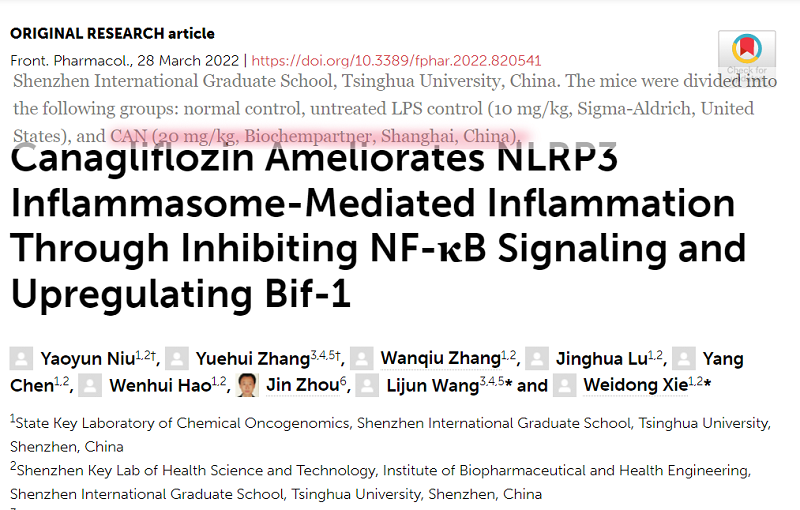Canagliflozin Ameliorates NLRP3 Inflammasome-Mediated Inflammation Through Inhibiting NF-κB Signaling and Upregulating Bif-1

NOD-, LRR-, and pyrin domain-containing protein 3 (NLRP3) inflammasome is an important component of the innate immune system that mediates the secretion of the pro-inflammatory cytokines interleukin-1β (IL-1β) and IL-18. However, current studies have shown that the abnormal activation of the NLRP3 inflammasome is associated with inflammatory diseases such as atherosclerosis, diabetes, and pneumonia. In this study, we found that canagliflozin (CAN) transcriptionally inhibited NLRP3 inflammasome-related proteins by inhibiting the transduction of the nuclear factor κB signal. Autophagy is largely involved in the post-translational modifications of the NLRP3 inflammasome and is an important regulator of NLRP3 inflammasome assembly and activation. Bax-interacting factor 1 (Bif-1) plays an important role in autophagosome formation during early-stage autophagy. Our results are the first to indicate that CAN, a hypoglycemic drug, can inhibit the activation of NLRP3 inflammasome and inflammation by upregulating Bif-1 and autophagy in a non-hypoglycemic manner. This study provides new information regarding the treatment of patients with pneumonia, particularly those with concurrent diabetes.




